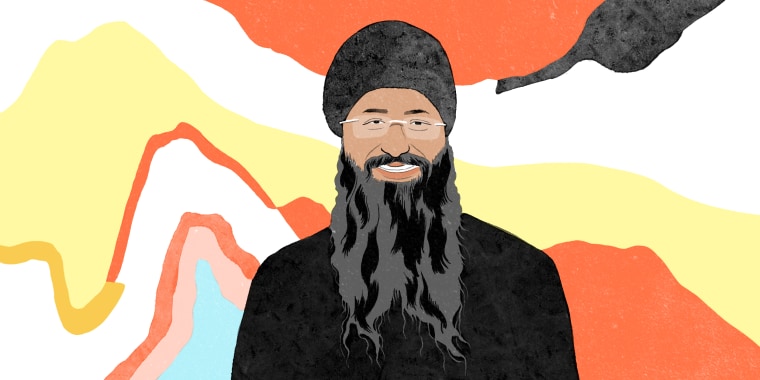When Sumitpal Singh's phone rings, the person on the other end is almost always in need of something: a hot meal, groceries or over-the-counter medicine. When he hears the request, he immediately does what he can, either by delivering the supplies himself or by finding someone who can.
Singh, 38, a Los Angeles-based scientist, is the Southern California coordinator for the international humanitarian nonprofit UNITED SIKHS. He said his drive to help others comes from his religious beliefs, which include the idea of selfless service — or "seva." In the past, faith has motivated Sikhs to help hurricane victims and supply on-site support to victims of violence in New Delhi. Now, it's inspiring Singh to provide relief during the coronavirus pandemic.
"From morning all the way to night, there's calls coming," Singh told NBC Asian America.
Singh has been volunteering with UNITED SIKHS for the last four years, preparing food in the langar — free kitchen — of a Sikh temple, called a gurdwara, and serving it to Los Angeles' homeless community. Langars are a core aspect of Sikhism, and anyone can step into a gurdwara anywhere in the world and be served a vegetarian meal. These values have led Sikh groups to help deliver food, water and other supplies after emergencies like Hurricane Sandy.
In the wake of the pandemic, Singh — who is from New Delhi — has been working with UNITED SIKHS to deliver resources to those in need in the Los Angeles area, where he's lived for the last 16 years.
"We have always been taught on Sikh principle that we should be helping people out," Singh said.
The organization has a hotline that anyone anywhere in the world — not just Sikhs — can call to request hot meals, over-the-counter medicine, groceries and other supplies.
Singh's days start with reviewing the hotline requests to identify which volunteers can be assigned to fulfill them. He said he's also planning a large-scale meal distribution program.
Many of the calls the group gets come from families with children, Singh said. A story that stuck out to him was the one about the parents of two young children who were stranded in a Los Angeles motel after their flight to India was canceled. They had nowhere else to go, and before calling UNITED SIKHS, they were living off McDonald's food. Other calls largely come from the elderly and those with disabilities, he said.
"They are really, really thankful, because they're scared to get out," Singh said.
People have shown their gratitude through text messages and donations, Singh said. People whom UNITED SIKHS has helped in the past are also coming forward to volunteer.
His biggest obstacle is finding volunteers in areas where there's no local UNITED SIKHS chapter. In those cases, the group will call restaurants, shops or grocery stores and ask them to deliver goods and cover any costs.
Traveling around Los Angeles and making deliveries could put Singh at risk for contracting the virus.
His day job involves making products for COVID-19 testing, so he knows the precautions he needs to take, especially because he has two young daughters. But he said his family is excited to do whatever they can to help the cause.
"Am I worried? I would say yes, because that helps me with taking more and more precautions," Singh said. "But the Sikh principle, it's a selfless seva. So that comes later for me, the worry. I am more worried about people sleeping without food."
This story is part of our Asian Pacific American Heritage Month series, "AAPI Frontline," honoring essential workers who are serving their communities during the coronavirus pandemic. Read more here.
Follow NBC Asian America on Facebook, Twitter and Instagram.
